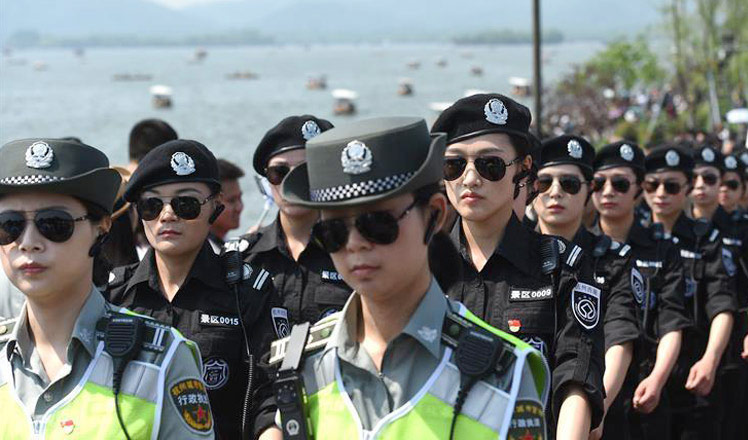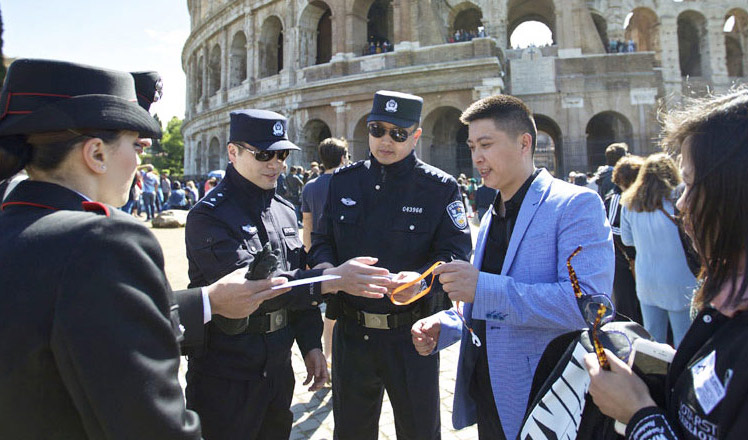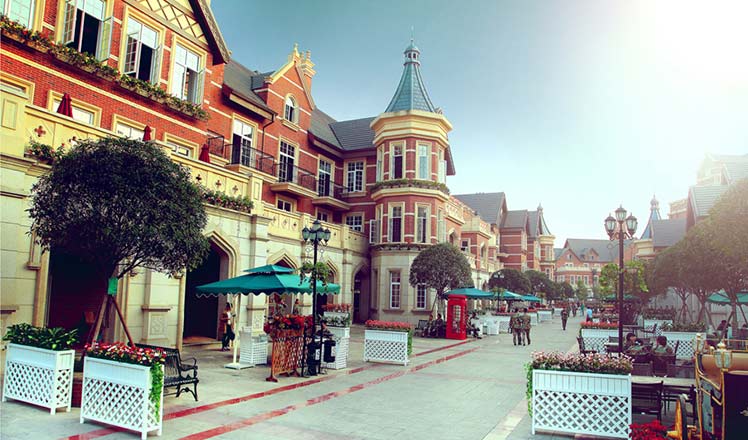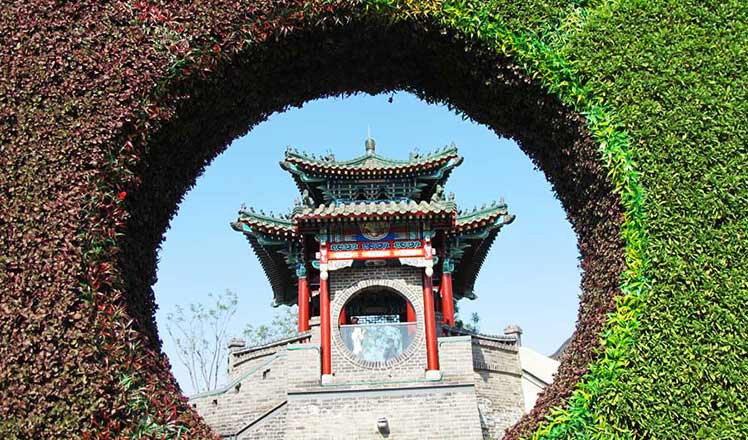New generation of imams preaching peace and harmony
Updated: 2016-05-03 08:12
By Cui Jia(China Daily)
|
||||||||
|
Students at the institute, many of whom are expected to become religious leaders, read a message on a smartphone during a class break on April 12. Wang Zhuangfei / China Daily |
Narrow perspectives
His father and grandfather are both imams in Xinjiang, and learned about Islam from older religious leaders in the local mosques. Although religious leaders have traditionally been trained that way, Ma said younger imams are concerned because they feel the system may promote a narrow religious outlook.
"It has flaws. For example, the students only learn from one imam and are easily influenced by his views, so they think they are the only correct ones to hold. My family always wanted me to go to the institute to master the knowledge they never had the opportunity to learn and to develop my own perspective during the process," he said, dressed in a white robe and matching taqiyah, the prayer skull cap worn by many Muslim men.
Despite his short time at the mosque, Ma has already developed his own style of leading the congregation. "I want people to feel I am easy to talk with, or just have a laugh with. I don't want or need to appear serious all the time just to show my authority."
His appointment was initially greeted with skepticism by worshippers at the mosque, which was completed in 2013. They felt Ma's youth would prevent him from fulfilling his responsibilities, but they've gradually been won over by his cheerful nature and deep religious knowledge.
Liu Qingli, who owns a restaurant next to the mosque, said he enjoys Ma's addresses during Jumah, the Friday prayer meeting that is the most important gathering of the week. The session is usually attended by about 100 worshippers, including Muslims from overseas, and some members of the congregation visit Doudian just to participate in Ma's services.
"He is young, but he is very capable of leading the mosque. It's great to see new blood in the mosques around China. They (the young imams) are like a breath of fresh air," said Liu, a 46-year-old Hui man. "Ma gets on well with the older believers because he respects them, and young people like to talk to him because of his down-to-earth attitude."
Ma said: "I am much younger than most of the followers who come to the mosque. I always say that I am their child in our personal lives because they can teach me so many lessons, but in our religious lives, I am their leader."
Kindness and respect
He said mosques are built to promote religion, respect and kindness. "An imam who encourages violent behavior is not an imam anymore, but simply a wolf in sheep's clothing. Those who recite the prayers five times a day and then commit violent acts will cause great damage to the community because people will believe the atrocities are being carried out by devout Muslims. But are these people really devout Muslims?
"People must ensure they make the right decisions, especially if someone praises Allah and then encourages people to pick up a weapon and kill," he said, adding that he often discusses such issues with the faithful and encourages them to learn more.
"In addition to learning about Islam, my studies at the institute gave me a broader view of Muslim life in China and the world outside; even my father is learning from me now," he said, adding that he teaches his father how to pronounce Arabic words correctly when the older man recites the Quran in his heavy Xinjiang accent.
Founded in 1955, the China Islamic Institute is situated in Niujie Street, the spiritual home of more than 10,000 Muslims in the Chinese capital.
"About 70 percent of our lessons are about religion, while 30 percent focus on other topics, such as Chinese literature and history," said Cong Enlin, vice-president of the institute, which has seen about 20 percent of its graduates become imams.
"I believe Islamic institutes will gradually become the mainstream of China's Islamic education, which is traditionally conducted in mosques," said the 51-year-old Hui man who is also a graduate of the institute. "The knowledge acquired by many older imams is no longer sufficient to answer many new questions, especially those posed by younger people."
To meet the rising demand for graduates, the institute plans to double enrollment to 50 in September. At the moment, most of the students are Hui, but the college will open a class specifically for Uygur students from Xinjiang. A new campus has already been built, he said. In addition to awarding bachelor's degrees, the center plans to offer postgraduate and doctoral courses in the future.
"The young students are the future leaders of China's Muslims, so it's crucial to make sure they don't go astray," Cong said.
- UN urges DPRK to stop 'further provocative action'
- China stresses Putin's expected visit
- British FM visits Cuba for 1st time since 1959
- Trump attacks Clinton on gender, risking backlash from women
- Pirate radio poses surprising challenge in internet age
- DPRK's Musudan missile launch appears to have failed

 Female patrol team seen at West Lake in Hangzhou
Female patrol team seen at West Lake in Hangzhou
 Drones monitoring traffic during May Day holiday
Drones monitoring traffic during May Day holiday
 Sino-Italian police patrols launched in Italy
Sino-Italian police patrols launched in Italy
 Met Gala: Fashion in an Age of Technology
Met Gala: Fashion in an Age of Technology
 Photos from around China in April
Photos from around China in April
 Top 10 luxury cars at the 14th Beijing auto show
Top 10 luxury cars at the 14th Beijing auto show
 European castle-style campus wows in Southwest China
European castle-style campus wows in Southwest China
 Industrial city reinvents itself as green oasis
Industrial city reinvents itself as green oasis
Most Viewed
Editor's Picks

|

|

|

|

|

|
Today's Top News
Liang avoids jail in shooting death
China's finance minister addresses ratings downgrade
Duke alumni visit Chinese Embassy
Marriott unlikely to top Anbang offer for Starwood: Observers
Chinese biopharma debuts on Nasdaq
What ends Jeb Bush's White House hopes
Investigation for Nicolas's campaign
Will US-ASEAN meeting be good for region?
US Weekly

|

|







